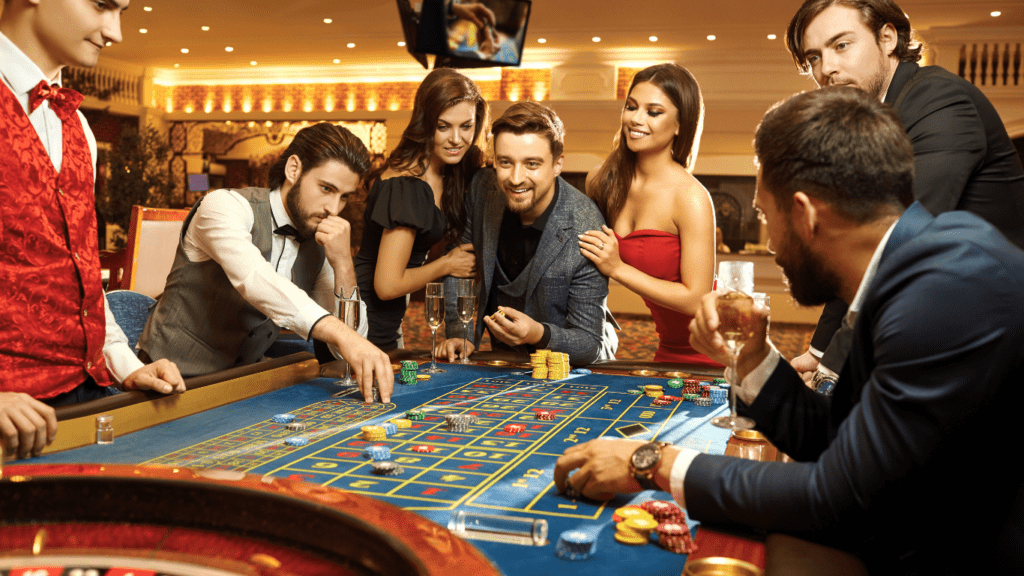Understanding The Psychology Of Betting
Betting engages cognitive and emotional processes that influence decision-making and risk evaluation. Recognizing these psychological factors can help maintain focus and improve outcomes.
The Link Between Betting And Decision-Making
Decision-making in betting relies on analyzing probabilities, assessing risks, and predicting outcomes. My mind processes these steps quickly, especially during live betting, leading to snap judgments. Cognitive biases, like overestimating recent wins (recency bias) or favoring personal preferences (confirmation bias), complicate rational choices. For example, I may bet higher on a team I like despite unfavorable odds. Understanding these biases strengthens decision-making clarity.
The Role Of Emotions In Betting Behavior
Emotions drive behavior during betting, often overpowering logical thinking. Winning ignites excitement and risk-seeking, while losing triggers frustration and potentially poor decisions, like chasing losses. Stress or overconfidence stemming from emotional reactions undermines judgment. I manage emotions by setting predefined betting limits or taking breaks to recalibrate focus. Recognizing emotional patterns improves self-control, creating a balanced approach to betting.
Common Psychological Traps In Betting
Betting often triggers cognitive biases that distort decision-making. Recognizing these traps can help maintain focus and improve long-term results.
Gambler’s Fallacy
The gambler’s fallacy arises from the belief that past results influence future outcomes in independent events. For example, assuming a roulette wheel landing on red multiple times increases the likelihood of black in the next spin is incorrect. This mindset often leads to poor decisions based on false expectations. Acknowledging that each event is independent prevents this error.
Overconfidence Bias
Overconfidence bias occurs when bettors overestimate their knowledge or predictive ability. For instance, believing research guarantees winnings can lead to excessive stakes and uncalculated risks. This bias often blinds one to the role of chance and variance. Regularly reviewing past outcomes objectively helps maintain realistic expectations.
The Allure Of Loss Chasing
Loss chasing refers to betting larger amounts in an attempt to recover losses. This behavior, driven by frustration or desperation, often results in further losses. For example, doubling bets after consecutive losses can quickly deplete funds. Setting strict limits on losses and sticking to a prearranged plan mitigates this risk.
Strategies To Stay Focused And Disciplined

Maintaining focus and discipline in betting involves structured strategies that promote rational thinking and limit impulsive behaviors. These strategies ensure decision-making remains calculated and emotionally balanced.
Setting Clear Goals And Limits
- I establish specific betting goals to create a structured approach to wagering.
- By defining a target, such as a maximum win or loss threshold, I avoid aimless activity and impulsive actions.
- Setting financial and time limits prevents overextension and helps stay within personal boundaries.
- I might decide not to wager beyond $100 in a single session or dedicate no more than two hours to betting.
- Sticking to these pre-defined parameters reduces risks and ensures I maintain control.
Practicing Mindful Decision-Making
I focus on mindfulness to enhance decision-making by considering each wager carefully, free from distractions or external pressures. Before placing bets, I evaluate all available data, odds, and risks rationally, avoiding spur-of-the-moment choices. If I feel rushed or notice emotional influences, I pause to analyze my reasoning more thoroughly. Practices like deep breathing or stepping away for a moment aid in maintaining awareness and composure, improving overall focus.
Managing Emotional Responses
I acknowledge and manage emotions, as they significantly influence betting decisions. Recognizing feelings like frustration after losses or overexcitement during streaks helps me regain balance. When I experience strong emotions, I implement coping mechanisms, such as taking a break or reflecting on past outcomes, to reset mentally. For instance, if a loss triggers the urge to chase, I return to my planned limits instead of reacting impulsively. This approach sustains emotional control and reinforces discipline.
The Importance Of Self-Awareness
Self-awareness plays a critical role in maintaining focus and discipline in betting. It enables me to recognize my:
- thoughts
- emotions
- behaviors
allowing for more rational and controlled decision-making.
Recognizing Triggers And Patterns
Identifying triggers and patterns in my betting behavior helps me understand what influences my decisions. External triggers like specific teams, high-stakes games, or promotional offers can lead to impulsive bets. Internal triggers, such as stress or excitement, may encourage uncalculated risks. By tracking these patterns, I gain insight into moments when my judgment might falter, enabling me to pause and reassess before acting.
Learning From Past Experiences
Reflecting on past betting outcomes provides valuable lessons for my future strategies. Wins reveal what worked, like thorough research or disciplined staking, while losses highlight moments influenced by emotions or biases. Reviewing these situations objectively allows me to pinpoint missteps, such as chasing losses or relying on intuition over data. This reflection fosters a continuous improvement process, ensuring that my decisions become more calculated over time.


 Franciscal Morinaller, the founder of Gamble Live Risk, is committed to equipping gambling enthusiasts with valuable insights, strategies, and industry updates. With a passion for strategic gameplay, he created the platform to help players improve their skills in casino games, slots, and poker. Under his leadership, Gamble Live Risk has become a trusted resource, offering expert advice and the latest trends to enhance the gambling experience.
Franciscal Morinaller, the founder of Gamble Live Risk, is committed to equipping gambling enthusiasts with valuable insights, strategies, and industry updates. With a passion for strategic gameplay, he created the platform to help players improve their skills in casino games, slots, and poker. Under his leadership, Gamble Live Risk has become a trusted resource, offering expert advice and the latest trends to enhance the gambling experience.